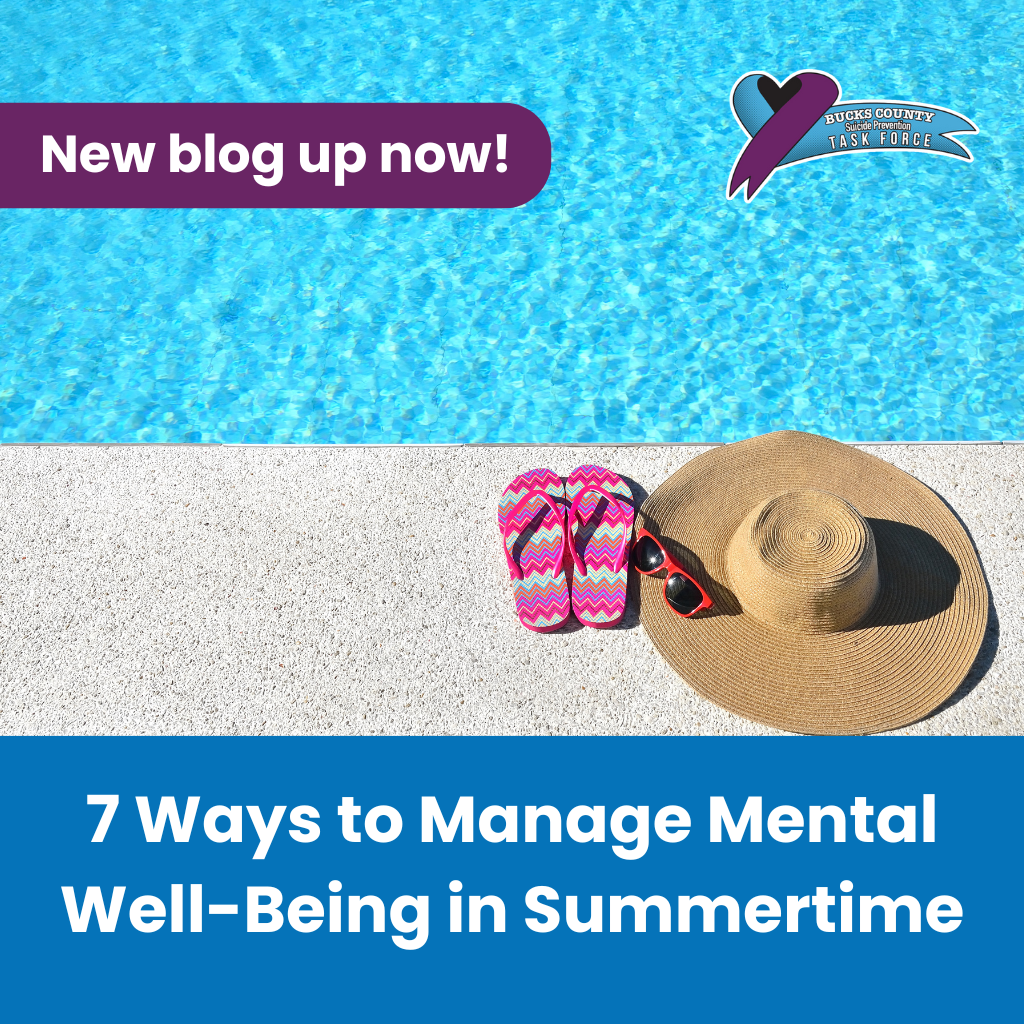Stay Balanced, Energized, and Emotionally Healthy All Season Long
Summer is often associated with sunshine, vacations, and carefree fun, but it can also bring unexpected stress, emotional ups and downs, and disruptions to our usual routines. For some, longer days and increased social obligations can lead to burnout, while others may feel isolated or anxious about body image, travel expenses, or family dynamics.
Mental well-being, like physical health, requires intentional care, especially during the busy and often overstimulating summer months. The good news? With a few mindful practices, you can maintain emotional balance, reduce stress, and truly enjoy the season. Here are seven effective ways to manage your mental well-being during summertime.
- Stick to a Healthy Sleep Routine
With the sun setting later and social activities stretching into the evening, it’s easy to lose track of a regular sleep schedule in the summer. However, disrupted sleep can quickly affect your mood, focus, and overall mental health.
Try to:
- Keep a consistent bedtime and wake-up time, even on weekends.
- Create a cool, dark, quiet sleeping environment. Blackout curtains and a fan can help.
- Limit screen time before bed to help your brain wind down.
Adequate, high-quality sleep supports emotional regulation and helps you better manage stress and anxiety, no matter the season.
- Stay Hydrated and Nourished
Warm weather increases the body’s need for hydration. Dehydration, even mild, can cause fatigue, headaches, irritability, and trouble concentrating. Combine that with summer barbecues, ice cream treats, and travel snacks, and your nutrition might take a hit as well.
Support your mind and body by:
- Drinking at least eight glasses of water a day (more if you’re outdoors or active).
- Eating a variety of fresh, seasonal fruits and vegetables.
- Limiting alcohol and caffeine, which can dehydrate and disturb sleep.
When you nourish your body, you give your brain the fuel it needs to feel clear and balanced.
- Set Boundaries Around Social Events
Summer often comes with increased social invitations like family reunions, weddings, parties, and neighborhood cookouts. While these can be fun, too many events can lead to exhaustion or social anxiety, especially for introverts or people managing mental health conditions.
- Prioritizing the events that truly bring you joy.
- Politely declining invitations when you need time to rest or recharge.
- Scheduling “do nothing” days in between activities.
It’s okay to say no. Setting boundaries helps prevent burnout and allows you to be more present and engaged at the events you do attend.
- Make Time for Solitude and Self-Care
Between travel plans, family activities, and outdoor adventures, personal time can slip through the cracks during summer. But solitude is essential for mental clarity and emotional balance.
Try incorporating self-care into your summer by:
- Taking a solo walk in nature or reading in the shade.
- Practicing mindfulness, journaling, or yoga.
- Carving out 15–30 minutes a day just for yourself; no screens, no agenda.
These quiet moments help you reconnect with your inner self and recharge your emotional batteries.
- Get Outside—Mindfully
Spending time outdoors can boost your mood, reduce stress, and increase vitamin D levels. However, too much heat or sun exposure can have the opposite effect, leading to fatigue, dehydration, and irritability.
To make the most of the outdoors:
- Opt for early morning or evening walks when temperatures are cooler.
- Visit shaded parks, forests, or lakes for a nature break.
- Wear sunscreen, sunglasses, and a hat to stay protected.
Aim for at least 20 minutes a day of outdoor activity, whether it’s gardening, hiking, or simply relaxing on the porch. Nature has proven therapeutic effects that uplift mental health.
- Be Aware of the “Summer Blues”
Though we often associate seasonal affective disorder (SAD) with winter, some people experience depressive symptoms during the summer months. This may stem from disrupted routines, intense heat, or increased pressure to be happy and active.
Common signs include:
- Feeling sluggish or overwhelmed
- Sleep disturbances or appetite changes
- A sense of isolation or irritability
If you notice these symptoms, don’t ignore them. Reach out to a mental health professional, talk with a friend or family member, or explore therapy options. You’re not alone, and help is available year-round.
- Focus on What Truly Brings You Joy
It’s easy to get swept up in what you “should” do during summer; go to the beach, take a big vacation, host parties. But real well-being comes from tuning into what makes you feel good.
Ask yourself:
- What kind of summer experience do I want to have?
- What activities make me feel relaxed, fulfilled, or happy?
- What can I let go of that causes more stress than joy?
Maybe it’s staying home and reading more, trying a new hobby, or spending quality time with loved ones in small settings. Defining your own version of summer happiness is one of the most powerful mental health strategies of all.
Summer has the potential to be a time of deep renewal, joyful connection, and improved well-being, but only if you care for your mental health as intentionally as you do your vacation plans.
By getting enough rest, setting healthy boundaries, embracing solitude, and staying attuned to your emotional needs, you can create a summer that supports your whole self, mind, body, and spirit. After all, mental well-being doesn’t take a vacation—and with the right habits, it doesn’t have to.
If you are looking for additional mental health support for yourself or a loved one, you can contact the National Suicide & Crisis Lifeline 24/7 at 988 Text. Find more local resources on our website at https://holdonyoumatter.com/suicide-prevention-resources/.

